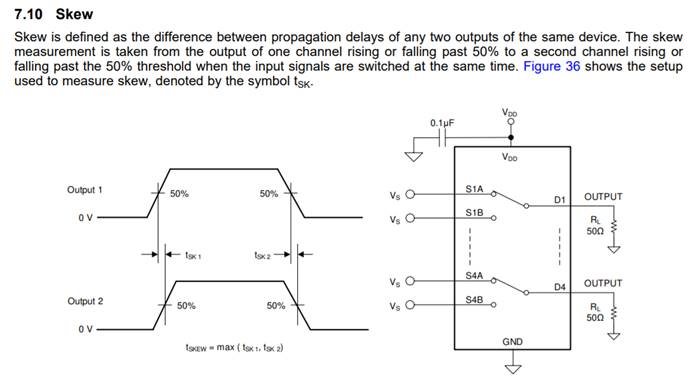Other Parts Discussed in Thread: SN74CBTLV3253,
e2e,
I'm doing a new SATA signal expansion card project for server, I'm looking for the I2C switch solution(3 sets I2C in ,1 set I2C out) and have 2 questions to ask:
1. Both SN74CBTLV3253 & TMUX1209 are suitable for customer design , two devices are similar except SN74CBTLV3253 can use 2
Separate OE# for 2 port , however in customer design , they will used 1 OE# for both ports.
2. Further question is , If they used TMUX1209 , what the propagation delay between (SXA)SCL /(SXB) SDA?
For example , if now is switched to 1st set I2C (SXA)SCL /(SXB) SDA as input , is there will be propagation delay between SXA & SXB
That causing the I2C clock and data out of sync at output(DA/DB)?
Customer is concerning if there’s delay between (SXA)SCL /(SXB) SDA , it may cause the issue like above.
Thank you,
Adam


